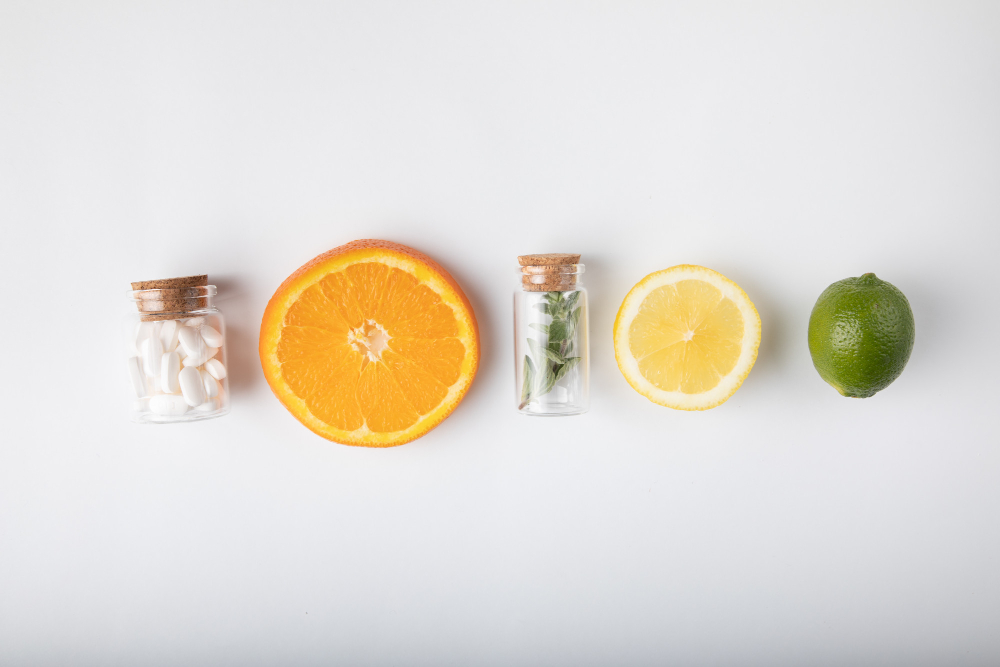
Since the COVID-19 outbreak began, many people have been looking for ways to strengthen the immune system and lower the chances of getting infected, especially for kids who are more at risk. Vitamin C has caught a lot of attention because it’s known to support immunity and act as an antioxidant, but whether it actually helps prevent COVID in children isn’t clear.
To clarify this, the Philippine Pediatric Society and the Pediatric Infectious Disease Society of the Philippines put together guidelines based on the latest research. It gives advice on how to use this vitamin as prevention of COVID in kids. Now, let’s break down their conclusions for parents and healthcare workers.
Philippine Pediatric Guidelines on Vitamin C and COVID-19
The Philippine Pediatric Society along with the Pediatric Infectious Disease Society of the Philippines, have put together clinical guidelines that are regularly updated to help care for children with COVID-19 in the country.
These guidelines cover a wide range of topics like how to prevent, diagnose, and treat COVID-19, and also look into popular supplements such as vitamin D, zinc, and ascorbic acid. Since there weren’t any studies focused specifically on kids and ascorbic for prevention of COVID, they also looked at adult research to help shape their advice.
Vitamin C and Child Health
Ascorbic acid is an important nutrient that helps the immune system and protects cells from damage. In the Philippines, many children-especially toddlers and those from less well-off families-don’t get enough of this vitamin because fresh fruits and vegetables aren’t always easy to get. Because our bodies can’t make ascorbic on their own, it has to come from the food kids eat or from supplements, with daily needs changing depending on their age.
What Does the Evidence Say About Vitamin C and COVID-19 Prevention?
When it comes to preventing COVID-19, the evidence on ascorbic acid is limited and unclear, especially for children. The Philippine Pediatric guidelines found no studies directly testing its effect on COVID prevention in children.
On top of that, two adult observational studies showed no clear benefit of this nutrient in preventing viral infection. These studies had limitations such as small sample sizes and lack of control over other factors, so the evidence is considered very weak.
It is also important to note that results from adults may not apply to children because their immune systems and how they respond to infections differ.
Recommendations from the Philippine Pediatric Societies
Given the uncertain evidence, the Philippine Pediatric Society and the Pediatric Infectious Disease Society advise against routinely giving ascorbic acid supplements to children just to prevent COVID-19. This recommendation is cautious because the evidence is very weak. Still, they stress that this vitamin is essential for overall health when taken in proper amounts.
Kids who don’t get enough of this nutrient from their diet-such as toddlers, children from low-income families, or those with limited access to fresh fruits and vegetables-might benefit from supplements to support their general health and immunity.
But as a whole, this vitamin is not part of standard COVID-19 treatment for children, and although some adult studies have looked at high doses for severe cases, these aren’t recommended for regular use in kids.
Broader Perspectives and Current Trends
This vitamin has been studied for many years in relation to respiratory illnesses, and while it might help shorten colds in kids, there’s no strong proof it can stop viral infections like COVID-19. Around the world, health experts recommend sticking to trusted methods like getting vaccinated, wearing masks, washing hands, and keeping distance instead of relying on supplements.
Early in the pandemic, plenty of people tried vitamins and natural remedies, but experts warn that we need solid evidence before suggesting these as solutions. These days, research is still ongoing, and the Philippine guidelines will be updated as new information comes in.
Practical Advice for Families and Healthcare Providers
Parents and healthcare workers should focus on habits that will naturally boost kids’ immune systems. For instance, eating a balanced diet full of fruits and veggies, drinking enough water, staying active, and getting good sleep. Supplements with this vitamin should mainly be for children who aren’t getting enough from their meals, not given to all kids as a COVID-19 prevention method.
Similarly, doctors and nurses can check on a child’s diet during visits and recommend supplements if necessary. Along with good nutrition, proven steps like vaccination, handwashing, mask-wearing, and seeking medical help when needed are still key.
Key Takeaway
The Philippine Pediatric COVID-19 guidelines suggest that taking vitamin C regularly as prevention of COVID in kids isn’t supported by current research. Still, it’s important for children-especially those who might not get enough-to have enough of this nutrient for their overall health.
The best way to keep kids healthy during the pandemic is through a mix of good nutrition, proven prevention methods, and staying updated with new studies. As more information becomes available, these guidelines will be revised to help families and healthcare providers make the best choices for children’s well-being.